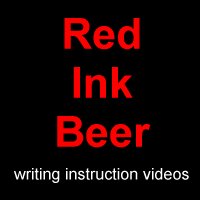When you are writing a document to persuade your reader about an idea, you present your supporting ideas or evidence leading up to the main point. If you do this well, your reader will come to the same conclusion that you are trying to make.
To show that you have finished making your argument (i.e., completed writing about the reasons for your idea) and are about to state the main idea, you use a concluding word. A concluding word tells the reader, “Based on this information, I conclude that . . . .” Sample concluding words and phrases are thus, therefore, in conclusion, and as a consequence.
These concluding words provide a signpost for the reader. They say, “I’m done giving the evidence, and now I’m going to tell you the idea that I want you to believe.”
You may be able to make your main point without them. However, they are very effective for helping the reader identify what it is you want them to understand.
This is the strategy for day 81 in 300 Days of Better Writing, available at Hostile Editing in PDF, Kindle, and paperback formats.
For a sample of 300 Days of Better Writing and other books by Precise Edit, download the free ebook.




